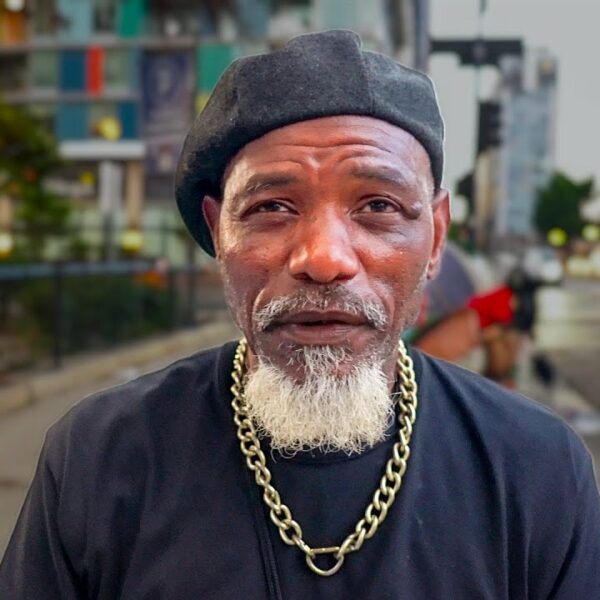Renters across the country find themselves at sudden risk of becoming homeless after a federal court overturned the Center for Disease Control’s (CDC) eviction moratorium.
In early May, U.S. District Judge Dabney Friedrich vacated the moratorium on a technicality. The order was issued in response to a lawsuit filed by the Alabama Apartment Association. The suit asked the court whether the CDC could enforce the ban under the Public Health Service Act, which outlines the CDC’s authority.
Friedrich ruled that the Act does not grant the CDC that authority. The judge immediately issued a hold while the federal government worked out a solution. She caveated that there was “no doubt” the agency acted in good faith when it issued the moratorium. However, her ruling put the millions who remain behind on their rent payments at-risk of experiencing homelessness.
The nation’s increasing vaccination rate has brought with it a glimmer of hope that “normalcy” can be reclaimed along with narratives of economic prosperity drawing near. In response, several states have moved to shut down unemployment benefits and rental assistance payments.
These policy decisions put over 11 million renters who are behind on payments at-risk of losing their home.
As of this writing, 11 states have ended federal unemployment benefits ahead of their Sept. 6 expiration date. The aid provided a weekly $300 payment on top of any state benefits, and was made available to self-employed and gig workers.
Many of the state governors have said the move is in response to labor shortages in their states. Critics, however, have their doubts.
Peter Ganong, an assistant professor of public policy at the University of Chicago, said the picture is much more complicated than the politicians are painting it. He said the country needs more time to digest the data that’s been generated during the pandemic.
“The labor market is undergoing a massive readjustment right now,” Ganong said. “Let’s wait for data rather than making policy based on anecdotes.”
But, waiting much longer could result in more people sleeping on the streets as landlords regain the power to evict tenants in arrears.
President Joe Biden supports expanding Section 8 housing vouchers to reach more than 200,000 more families. The expansion is projected to cost $5.4 billion. However, it will reach many people who are at-risk of experiencing homelessness once the moratorium officially ends.
While Section 8 certainly provides housing solutions for many low-income families, it also has its flaws.
The biggest impediment for people seeking vouchers is the information gaps in the process. It also requires people to prove they are generating income before applying. Another impediment is that many landlords are not accepting housing vouchers.
Meanwhile, several states like Arizona, Kansas, Alabama, and North Carolina do not have laws in place that prohibit source-of-income discrimination. Similarly, more than 100 localities lack the same laws, the organization found.
Preventing Evictions
On May 7, the U.S. Treasury Department released new guidance on the Emergency Rental Assistance (ERA) program that has become a lifeline for so many. The changes were designed to ensure the benefits reach the lowest-income families first, a group that struggled to receive benefits under previous editions.
The updated guidance also departs from previous program iterations in four key ways:
- Provides Direct-to-Tenant assistance payments
- Allows people to self-attest their need rather than prove it through documentation
- Prioritizes households with the lowest income first
- Sends ERA payments to people living in federally-subsidized housing
While ERA provides a temporary solution, there remain several long-term housing issues that the U.S. is facing.
For starters, the nation’s unemployment rate stands at 6.1 percent. That’s nearly three percentage points higher than pre-pandemic levels, according to the Bureau of Labor Statistics. In all, this total accounts for 9.8 million people who are looking for work.
A Brookings Institute study found the pandemic hollowed out the low-wage workforce as well. The people most likely to experience layoffs or reductions were low-education, low-income, and people of color. In all, these groups were six-times more likely to be laid off than their White counterparts.
Meanwhile, the pandemic caused the U.S. to experience its largest growth in poverty since the 1960s. The growth represents an additional 8 million people joining the “poor” ranks.
At the same time, HUD’s annual report showed the unhoused population grew by 2.2 percent in 2020. Last year was also the first year that the number of people experiencing unsheltered homelessness eclipsed the shelter population.
Several state legislatures have introduced legislation to help protect at-risk renters from an “eviction tsunami,” that many housing advocates are worried is on the verge of occurring.
For example, Colorado lawmakers introduced a bill that would give renters the ability to seek legal recourse against a landlord for a wrongful eviction. Denver is also considering an ordinance that would guarantee the right to counsel for people making less than 80 percent of an area’s median income during eviction proceedings.
However, without stronger protections in place at both the federal and state level, many renters may soon find themselves sleeping rough.













